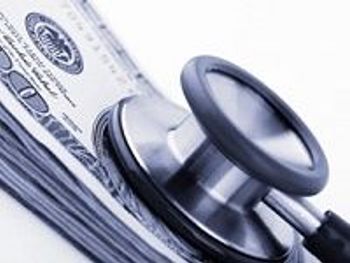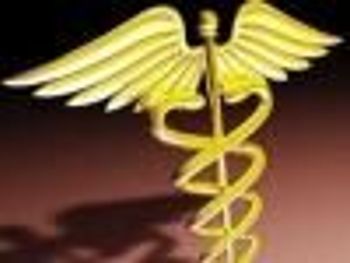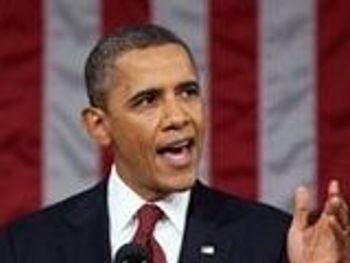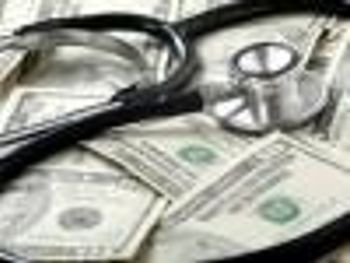
Seismic shifts in the medical industry have made marketing ever important for medical practices, especially with the proliferation of social media and other online advertising tools.

Seismic shifts in the medical industry have made marketing ever important for medical practices, especially with the proliferation of social media and other online advertising tools.

A pair of medical experts – one from industry and one from academia – have teamed up to call for a new payment model for expensive gene therapies.

Blindly acting on advice from others can be a sure way to lose money. Before you invest, learn about financial advisors and investments. Find out who you can trust to advise you on how stock markets work and about specific industries - especially those in which you may invest.

A new study in the September edition of Health Affairs finds American hospitals spend far more on administrative costs than 7 other nations.

I don't know who made the claim that "the medical profession is the highest calling a person can follow," but I heard my father make reference to the expression a few times. I believe it's true-based on the deeds and words of my physician dad during his long years of practice and my observations and readings about the profession in general.

What's in a name? For Roshini Raj, MD, a board certified gastroenterologist and internist at NYU Medical Center/Tisch Hospital in New York City, brevity has been a key factor.

The 2014 Provider Compensation and Productivity Report found overall compensation for cardiologists dropped 8% from 2012 to 2013, a decrease attributed in part to a slight decline in productivity.

We have long wanted to sail Portugal's river of history, the Douro, but time constraints meant we skipped the Lisbon part of Uniworld's cruise and flew direct to Porto, the second largest city in Portugal.

The US Department of Health and Human Services (HHS) this week announced the winners of $60 million in grants to help consumers find insurance on the government's healthcare marketplaces this year.

Retiring to a warm and sunny climate is the kind of thing most workers dream about. However, the financial feasibility of that dream can depend a lot on which sunny climate you choose.

We should be interested in how physicians reduce stress in their lives, especially when a first-year resident in internal medicine at Yale-New Haven hospital writes an articulate and sensitive opinion piece for the New York Times on doctor suicide.

The number of retirees is surging. The last thing pre-retirees want to do at this stage of their lives is to fumble while in the red zone of their retirement date.

Ah, the times they are a-changing. And nowhere is that change more evident in healthcare than in the area of billing and collection.

Doctors have less than a week to review and dispute data regarding their financial interactions with drug and medical device companies before the information is made public later this month.

Market sentiment is the crowd psychology of market participants and can help give investors a clue of the future direction of a market.

Forty-five million Americans lacked health coverage in 2012, but that number could fall to 23 million by 2023, if the agency's predictions hold true. The study was published in the September edition of Health Affairs.

There is a major reason why hospitals are so eager to acquire practices in competitive markets; each physician in a full-time practice generates between $1 million and $3 million in consequent hospital activity.

While industry analysts expected Medicaid expansion states would see larger increases in paying customers compared to non-expansion states, the gap was far greater than predicted.

Many investors are still shy from the drubbing they took in 2008 or feel that it's too late to get into the market now. That kind of scared thinking is going to cost them.

Healthcare spending is expected to accelerate over the next decade, but the pace of growth won't match pre-recession levels, according to a new study.

The earlier ruling from a 3-person DC appeals court that invalidated healthcare subsidies for people purchasing plans on federally run marketplaces will be reconsidered by the full circuit court.

The 401(k) retirement accounts of many employees are going up in smoke due to excessive fees charged by their investment company. Unless this can be rectified through legislation, higher earners may end up paying for the shortfall later.

It's no secret that doctors will be in high demand in the coming years. Baby Boomers are retiring and expected to consume more healthcare as they age. The country's working-age population, meanwhile, isn't growing fast enough to keep up.

Pennsylvania's announcement last week that it will expand Medicaid eligibility could hearken a wave of Republican-led states agreeing to a signature facet of President Obama's healthcare law. With the agreement, Pennsylvania became the 28th state (including the District of Columbia) to approve a Medicaid expansion plan since the Affordable Care Act was signed into law in 2010.

When it comes to our finances, few of us are nearly as diligent as we are with our physical health. Most of us don't keep good records, make budgets or monitor our overall financial health.

For high-income households, the cost to raise a child to age 18 can exceed $400,000, but money is not the only thing involved in being a parent.

A major demonstration project designed to gauge the effectiveness of bundled payments exposed the complications of implementing such a system. Officials say the 3-year study fizzled after participation waned and the number of applicable cases proved too few to be statistically relevant.

The newest final rule for the Medicare and Medicaid EHR Incentive Programs provides more flexibility in how healthcare providers use certified electronic health record technology to meet meaningful use for an incentive reporting period in 2014.

Portugal's Douro River may not be particularly long, but it carries a history that covers the beginning of the port wine trade in the 1600s.

If there is one lesson investors learn, it should be to avoid being bearish for too long. Otherwise, you miss out on some incredible investment runs on Wall Street.